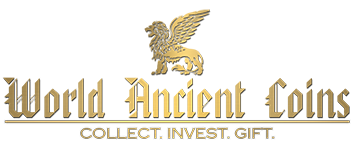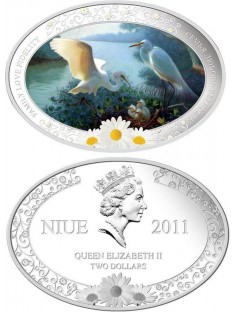- Mintage Limit ONLY - 8000
- Coin with Pad printing
- Each coin is struck from 1oz of pure silver
- Coin in capsule+with Certificate of Authenticity + Presentation Case
Storks are large, long-legged, long-necked wading birds with long, stout bills. They belong to the family Ciconiidae. They are the only family in the biological order Ciconiiformes, which was once much larger and held a number of families.
Storks occur in many regions of the world and tend to live in drier habitats than the related herons, spoonbills and ibises; they also lack the powder down that those groups use to clean off fish slime. Storks have no syrinx and are mute, giving no call; bill-clattering is an important mode of stork communication at the nest. Many species are migratory. Most storks eat frogs, fish, insects, earthworms, small birds and small mammals. There are 19 living species of storks in six genera.
Various terms are used to refer to groups of storks, two frequently used ones being a muster of storks and a phalanx of storks.
Storks tend to use soaring, gliding flight, which conserves energy. Soaring requires thermal air currents. Ottomar Anschütz's famous 1884 album of photographs of storks inspired the design of Otto Lilienthal's experimental gliders of the late 19th century. Storks are heavy, with wide wingspans: the Marabou Stork, with a wingspan of 3.2 m (10.5 ft), joins the Andean Condor in having the widest wingspan of all living land birds.
Their nests are often very large and may be used for many years. Some nests have been known to grow to over 2 m (6 ft) in diameter and about 3 m (10 ft) in depth. Storks were once thought to be monogamous, but this is only partially true. They may change mates after migrations, and may migrate without a mate. They tend to be attached to nests as much as partners.
Storks' size, serial monogamy, and faithfulness to an established nesting site contribute to their prominence in mythology and culture.




